
Lake Baringo: A Jewel in Kenya's Rift Valley
Lake Baringo, nestled in Kenya's Rift Valley, is an oasis of biodiversity and a paradise for birdwatchers. This freshwater lake, one of the two in the Rift Valley that is not alkaline, is home to over 470 species of birds, making it a must-visit for ornithologists and nature enthusiasts alike. Beyond the avian wonders, Lake Baringo is surrounded by dramatic landscapes. The Tugen Hills and Laikipia Escarpment provide a stunning backdrop, offering opportunities for hiking and photography. The lake is also teeming with wildlife, including hippos and crocodiles, which can often be seen basking along the shores. Visitors can explore the lake by boat, giving a close-up view of the diverse flora and fauna. The local Njemps community, who live on the shores of the lake, offer cultural tours and insights into their traditional way of life. Their fishing techniques and crafts add a rich cultural dimension to any visit. Whether you are seeking an adventure in nature, a cultural experience, or simply a serene escape, Lake Baringo offers something unique and unforgettable.
Local tips in Lake Baringo
- Carry binoculars for birdwatching; Lake Baringo hosts over 470 bird species.
- Hire a local guide for a boat tour to safely explore the lake's wildlife.
- Visit the local Njemps community to learn about their unique fishing techniques and traditional crafts.
- Pack insect repellent, especially if you plan to stay overnight.
- Bring a good camera to capture the stunning landscapes and diverse wildlife.
Lake Baringo: A Jewel in Kenya's Rift Valley
Lake Baringo, nestled in Kenya's Rift Valley, is an oasis of biodiversity and a paradise for birdwatchers. This freshwater lake, one of the two in the Rift Valley that is not alkaline, is home to over 470 species of birds, making it a must-visit for ornithologists and nature enthusiasts alike. Beyond the avian wonders, Lake Baringo is surrounded by dramatic landscapes. The Tugen Hills and Laikipia Escarpment provide a stunning backdrop, offering opportunities for hiking and photography. The lake is also teeming with wildlife, including hippos and crocodiles, which can often be seen basking along the shores. Visitors can explore the lake by boat, giving a close-up view of the diverse flora and fauna. The local Njemps community, who live on the shores of the lake, offer cultural tours and insights into their traditional way of life. Their fishing techniques and crafts add a rich cultural dimension to any visit. Whether you are seeking an adventure in nature, a cultural experience, or simply a serene escape, Lake Baringo offers something unique and unforgettable.
When is the best time to go to Lake Baringo?
Iconic landmarks you can’t miss
Soi Safari Lodge
Discover the tranquility and wildlife of Lake Baringo at Soi Safari Lodge, a premier resort hotel offering nature and adventure in Kenya.

Lake Bogoria Hot Springs
Explore Lake Bogoria Hot Springs: A stunning Kenyan national reserve known for its geothermal wonders, vibrant wildlife, and breathtaking landscapes.
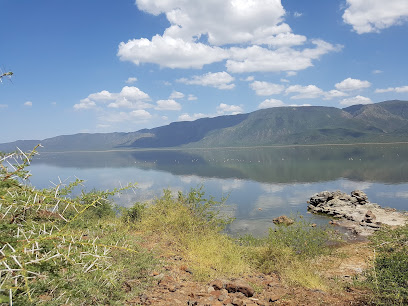
Lake Baringo Attractions
Explore the natural beauty and cultural richness of Lake Baringo, a tranquil freshwater lake perfect for adventure, relaxation, and unforgettable experiences.
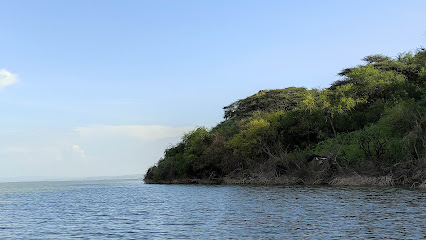
Sandai Resort
Discover serenity and adventure at Sandai Resort, a perfect retreat in Upper Kaptelit, Kenya, surrounded by breathtaking landscapes and rich wildlife.

Kabarnet Museum
Explore the rich cultural heritage of Baringo County at Kabarnet Museum, where history and tradition come alive.
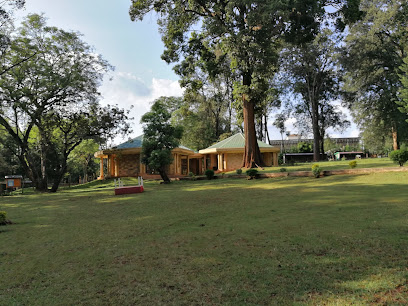
Baringo Safaris Co.
Discover Lake Baringo's stunning landscapes, vibrant culture, and diverse wildlife with Baringo Safaris Co., your trusted partner for unforgettable adventures.
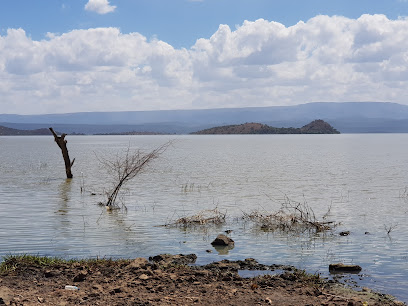
Island Camp Baringo
Experience the serene beauty of Island Camp Baringo, a tranquil retreat on Ol Kokwe Island offering nature, adventure, and relaxation in Kenya.
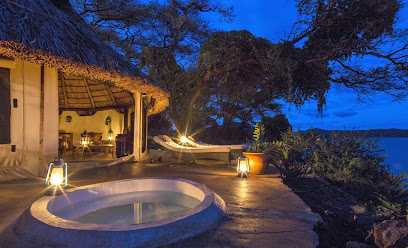
Tumbili Cliff Lodge
Experience tranquility and breathtaking views at Tumbili Cliff Lodge, your ultimate escape in Kampi Ya Samaki, Kenya.
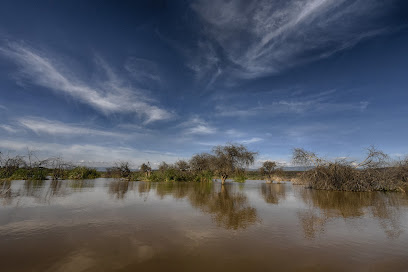
Royal Doves Garden
Experience tranquility at Royal Doves Garden, a serene resort on Lake Baringo, where nature meets luxury and relaxation awaits.
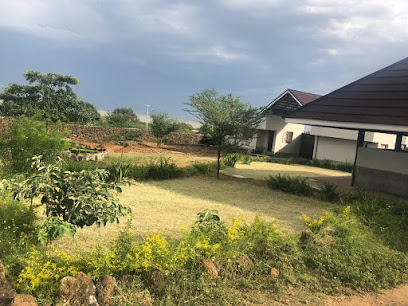
Lake baringo hot water springs
Experience the healing waters and breathtaking scenery at Lake Baringo Hot Water Springs, a unique gem nestled in Kenya's natural landscape.
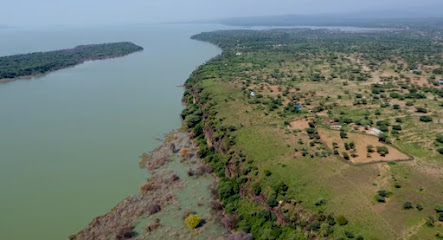
Samatian Island
Experience the serene beauty of Samatian Island, Kenya's hidden gem, where luxury meets nature for an unforgettable getaway.
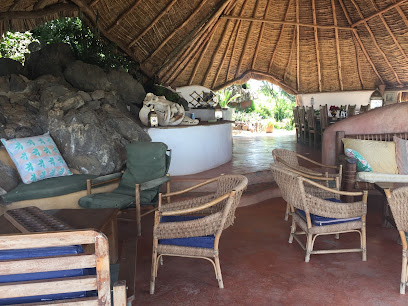
Baringo Tours, Boats and Excursions
Discover the serenity of Lake Baringo with boat rentals, guided tours, and camping at Baringo Tours, a perfect escape into nature's embrace.
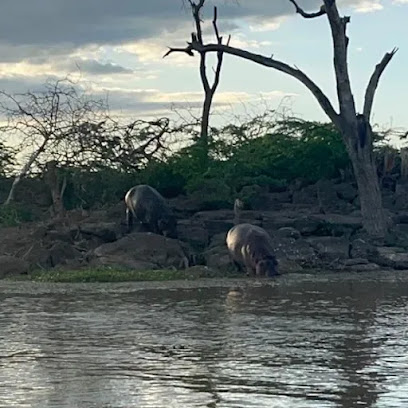
Ol Kokwe Island
Experience the tranquility and natural beauty of Ol Kokwe Island, a serene getaway in Lake Baringo, Kenya, perfect for nature lovers and cultural enthusiasts.
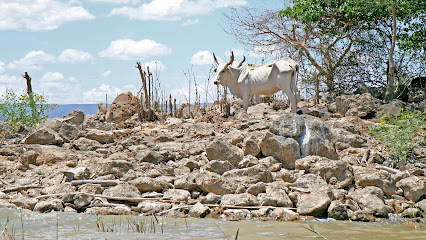
Lake Baringo Airport
Explore the serene beauty of Lake Baringo, where adventure meets tranquility at Lake Baringo Airport, your gateway to unforgettable experiences in Kenya.

Unmissable attractions to see
Lake Baringo Attractions
Experience the tranquility and rich biodiversity of Lake Baringo, a pristine oasis in Kenya perfect for nature lovers and cultural explorers.
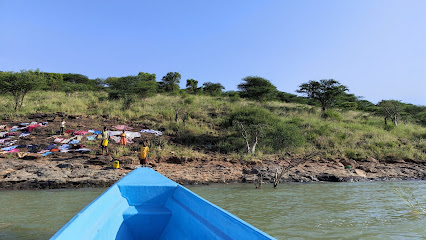
Baringo Safaris Co.
Discover the beauty of Lake Baringo with Baringo Safaris Co., offering boat tours, hiking adventures, and vibrant cultural experiences.
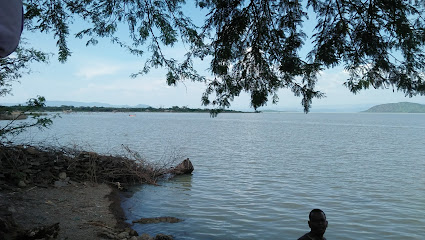
KOROSIN CAMPSITE
Discover the tranquility and natural beauty of Korosin Campsite, a perfect getaway for adventure seekers and nature lovers in Loruk, Kenya.
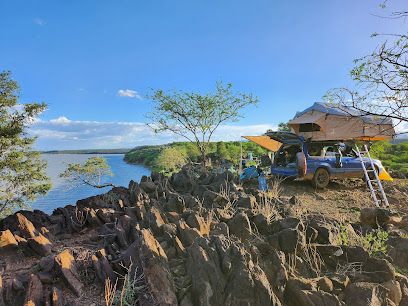
Kormoson Archaeological Site - Lake Bogoria
Explore the Kormoson Archaeological Site at Lake Bogoria, where ancient history meets stunning natural beauty in Kenya's captivating landscapes.
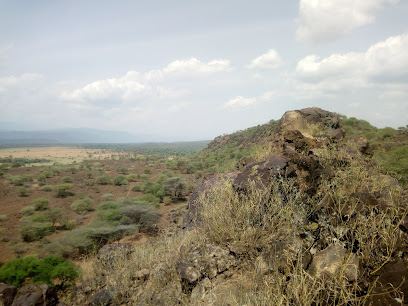
Kiborgoch Wildlife wetlands and community conservancy
Discover the serene beauty of Kiborgoch Wildlife Wetlands, a prime destination for nature lovers and wildlife enthusiasts in Lorwok, Kenya.
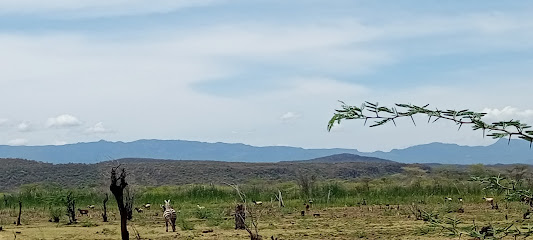
Irong Conservancy
Explore the natural beauty of Irong Conservancy in Kapkelelwa, Kenya, where wildlife thrives and nature beckons.

Rarau cliff Baringo
Experience the breathtaking views and vibrant wildlife at Rarau Cliff, a premier hiking destination in Baringo, Kenya.

Baryat hill view
Experience the stunning panoramas of Baryat Hill View in Lorwok, Kenya, a tranquil escape for nature lovers and photography enthusiasts.

Parmalog Lookout
Discover the stunning vistas at Parmalog Lookout in Meisori, Kenya - a perfect escape into nature's beauty and tranquility.

Essential places to dine
Lake Bogoria Spa Resort
Experience luxury and nature intertwined at Lake Bogoria Spa Resort - your ultimate getaway in Kenya's stunning landscapes.
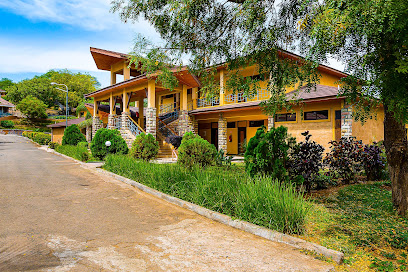
Rift Valley Hills Resort
Discover culinary delights amidst breathtaking landscapes at Rift Valley Hills Resort in Kabarnet, Kenya.

Soi Safari Lodge
Discover unparalleled comfort amidst nature at Soi Safari Lodge - your gateway to Kenya's breathtaking wildlife adventures.

Baringo Safaris Co.
Discover adventure at Baringo Safaris Co., where thrilling boat tours meet rich cultural experiences by Lake Baringo.
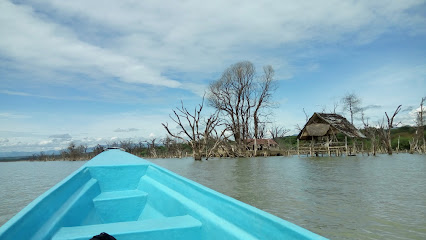
Island Camp Baringo
Experience tranquil escapes at Island Camp Baringo; a serene oasis on Ol Kokwe Island offering stunning views and rich cultural experiences.
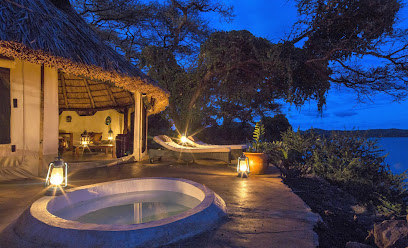
Tumbili Cliff Lodge
Experience breathtaking views and exceptional hospitality at Tumbili Cliff Lodge - your perfect getaway in Kenya's scenic coastline.
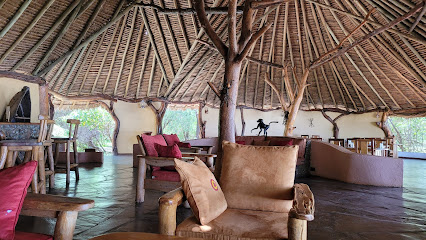
Samatian Island
Experience tranquility at Samatian Island – A serene retreat in Lake Baringo perfect for fishing, birdwatching, and relaxation amidst nature.
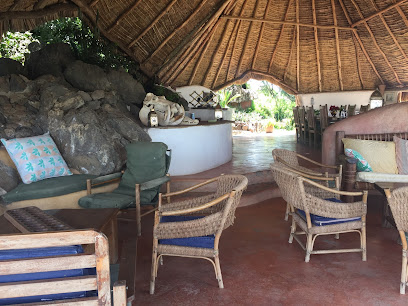
Baringo Tours, Boats and Excursions
Discover unforgettable adventures at Baringo Tours: boat rentals, guided excursions & stunning natural beauty await you.
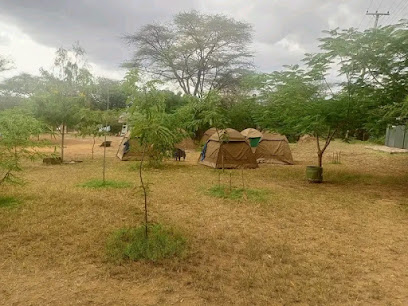
Tamarind Gardens
Discover authentic Kenyan flavors at Tamarind Gardens, where fresh ingredients meet breathtaking views in Upper Kaptelit.
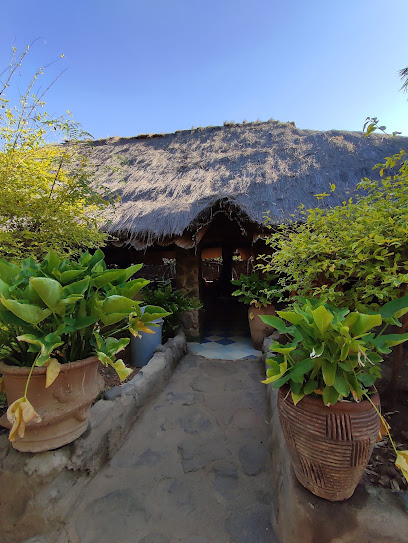
The Lake House
Experience tranquility at The Lake House, your perfect self-catering getaway surrounded by Kenya's stunning natural beauty.
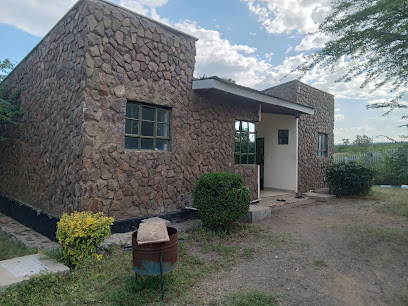
Unique Salads & Sandwich Bar
Discover fresh and flavorful African-inspired dishes at Unique Salads & Sandwich Bar in Nakuru – perfect for health-conscious travelers.

Markets, malls and hidden boutiques
Sandai Resort
Discover the perfect blend of relaxation and adventure at Sandai Resort, your serene getaway in Upper Kaptelit, Kenya.

Baringo Safaris Co.
Experience the breathtaking beauty of Lake Baringo with Baringo Safaris Co., your gateway to adventure, culture, and unforgettable memories.
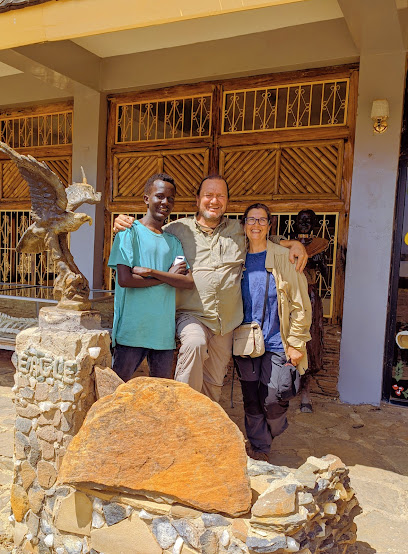
Tumbili Cliff Lodge
Experience the beauty of Lake Naivasha at Tumbili Cliff Lodge, a tranquil retreat for relaxation and adventure in Kenya's stunning landscape.
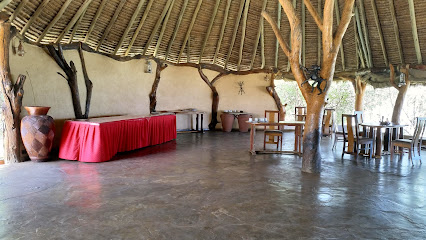
Royal Doves Garden
Experience the tranquility of Royal Doves Garden on Lake Baringo, a perfect resort for a serene escape and outdoor adventures in Kenya's natural paradise.
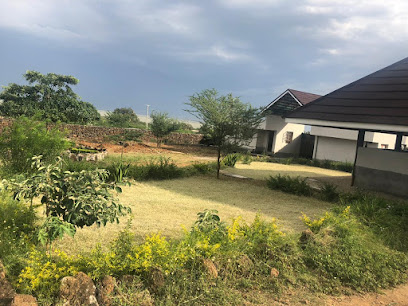
Baringo Tours, Boats and Excursions
Explore nature's beauty at Baringo Tours, where boat rentals, camping, and guided excursions create unforgettable experiences in Kenya's breathtaking landscapes.
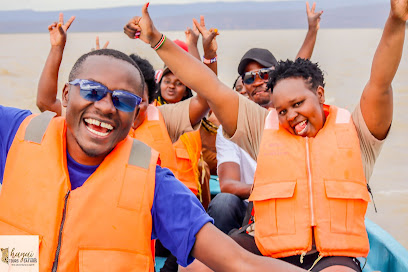
Subet Convenient Shop
Discover the best local and international products at Subet Convenient Shop, your ideal grocery destination in Marigat, Kenya.
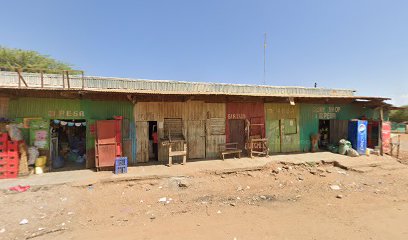
Sibilo Trading Centre
Discover the vibrant Sibilo Trading Centre, a shopping haven blending local culture, unique crafts, and delightful dining experiences in Sibilo, Kenya.

Uchumii Shop
Explore Uchumii Shop in Marigat for a unique supermarket experience with local goods and authentic Kenyan flavors.
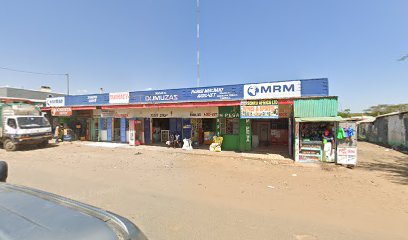
LEGIT COLLECTION~MARIGAT
Explore vibrant fashion trends and unique styles at LEGIT COLLECTION~MARIGAT, a must-visit clothing store in the heart of Marigat.
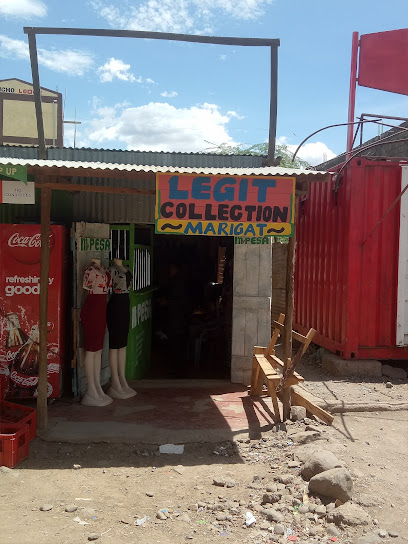
Koisulot complex
Explore Koisulot Complex for unique home goods and local craftsmanship that captures the essence of your travel experience.

LOGUMGUM trading centre
Explore LOGUMGUM Trading Centre in Njemps Mkubwa for unique local products and a taste of vibrant Kenyan culture.

Kaptere general Shop
Discover the charm of Kaptere General Shop in Kabartonjo, where local culture meets unique shopping experiences.
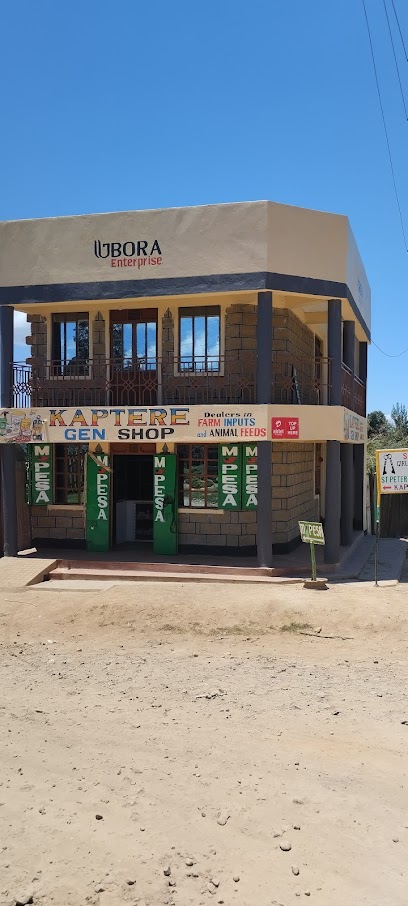
Marigat Lororo
Experience the vibrant atmosphere of Marigat Lororo Shopping Mall, where shopping, dining, and entertainment come together in Marigat.

M-Pesa Mobile World
Explore Marigat's M-Pesa Mobile World for seamless mobile banking and local tips to enhance your travel experience.

Kapindasum Shopping Center
Explore Kapindasum Shopping Center, Kamarabuyon's vibrant hub for shopping, dining, and local culture in a lively, welcoming atmosphere.

Essential bars & hidden hideouts
Soi Safari Lodge
Discover the beauty of Lake Baringo at Soi Safari Lodge, where luxury meets nature in a serene setting perfect for relaxation and adventure.

Royal Doves Garden
Experience tranquility and natural beauty at Royal Doves Garden, a serene resort hotel by the stunning Lake Baringo.
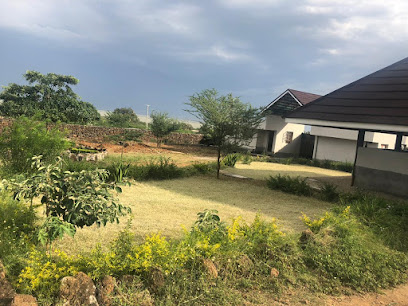
Spikes Bar
Experience the vibrant atmosphere and local flavors at Spikes Bar in Kabarnet, a must-visit destination for tourists seeking relaxation and culture.
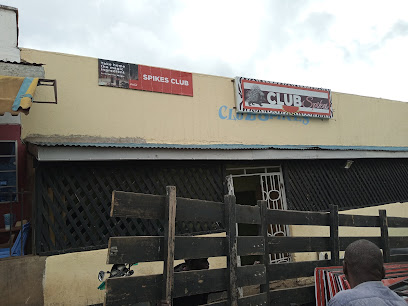
Tamarind Gardens
Discover the flavors of Kenya at Tamarind Gardens, where impeccable dining meets natural beauty in Upper Kaptelit.
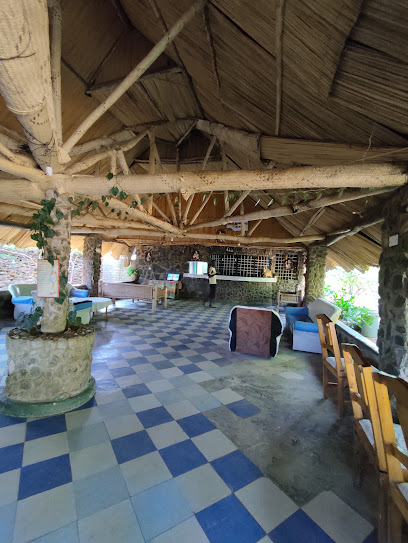
Busy Baby Bar And Restaurant
Experience the best of local and international flavors at Busy Baby Bar And Restaurant in Marigat, where a vibrant atmosphere meets delicious cuisine.
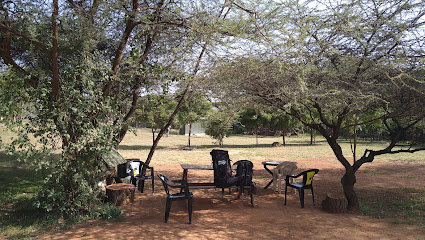
Bottoms-Up Liquor Store
Discover the vibrant nightlife of Marigat at Bottoms-Up Liquor Store, where friendly locals and travelers gather for drinks and good times.
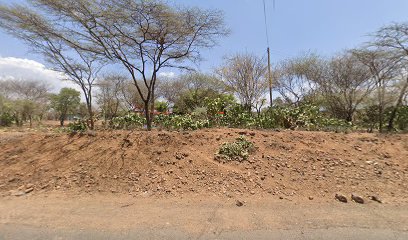
ChillSpot liquor
Explore ChillSpot Liquor for a unique nightlife experience filled with great drinks, vibrant atmosphere, and local culture.
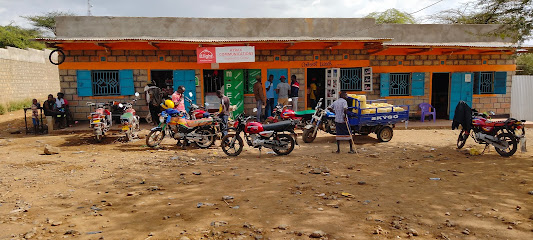
Alex Onyango Bar & Grill
Discover the vibrant atmosphere and mouth-watering grill specialties at Alex Onyango Bar & Grill, a top spot for culinary delights in the heart of the city.
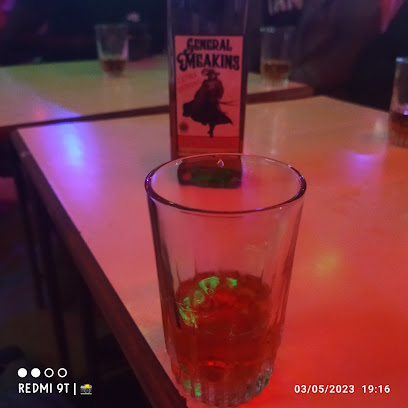
LaLiga Pub Kabartonjo
Experience the vibrant atmosphere of LaLiga Pub Kabartonjo, where delicious grill specialties meet the warmth of local culture in a lively setting.

County Bar
Experience the lively ambiance and rich local culture at County Bar, a must-visit destination for tourists in search of relaxation and fun.
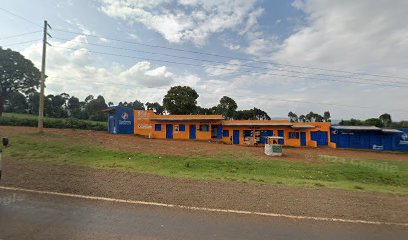
Three Ways Bar
Discover the charm of Kabarnet at Three Ways Bar, where locals gather for drinks and conversation in a cozy atmosphere.
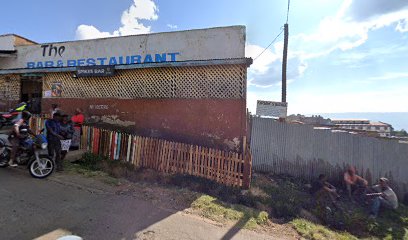
The Lake House
Experience tranquility at The Lake House, a serene self-catering retreat in the heart of Kenya's breathtaking landscapes.
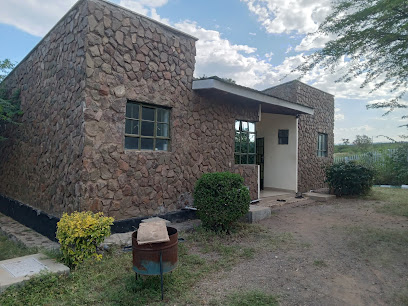
Lake Baringo Club
Discover the electrifying nightlife at Lake Baringo Club, where stunning lake views meet lively music and dance.

Wilson chebungei
Experience authentic Kenyan cuisine at Wilson Chebungei, a local treasure offering delicious dishes and vibrant culture along Nakuru - Sigor Rd.
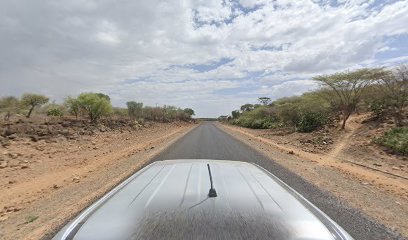
Local Phrases about Lake Baringo
-
- HelloSalam
[sa-lam] - GoodbyeKwaheri
[kwa-he-ri] - YesNdio
[n-dee-o] - NoHapana
[ha-pa-na] - Please/You're welcomeTafadhali
[ta-fa-dha-li] - Thank youAsante
[a-san-te] - Excuse me/SorrySamahani
[sa-ma-ha-ni] - How are you?U hali gani?
[u ha-li ga-ni] - Fine. And you?Mzuri. Na wewe?
[m-zu-ri. na we-we] - Do you speak English?Unasema Kiingereza?
[u-na-se-ma ki-in-ge-re-za] - I don't understandSieelewi
[si-e-le-wi]
- HelloSalam
-
- I'd like to see the menu, pleaseNingependa kuona menyu, tafadhali
[nin-ge-pen-da ku-o-na me-nyu, ta-fa-dha-li] - I don't eat meatSili nyama
[si-li nya-ma] - Cheers!Mambo!
[mam-bo] - I would like to pay, pleaseNingependa kulipa, tafadhali
[nin-ge-pen-da ku-li-pa, ta-fa-dha-li]
- I'd like to see the menu, pleaseNingependa kuona menyu, tafadhali
-
- Help!Usaidizi!
[u-sai-di-zi] - Go away!Nenda zako!
[nen-da za-ko] - Call the Police!Piga polisi!
[pi-ga po-li-si] - Call a doctor!Piga daktari!
[pi-ga dak-ta-ri] - I'm lostNimepotea
[ni-me-po-te-a] - I'm illNi mgonjwa
[ni m-go-njwa]
- Help!Usaidizi!
-
- I'd like to buy...Ningependa kununua...
[nin-ge-pen-da ku-nu-nu-a] - I'm just lookingNatazama tu
[na-ta-za-ma tu] - How much is it?Bei ni ngapi?
[bei ni nga-pi] - That's too expensiveHilo ni ghali sana
[hi-lo ni gha-li sa-na] - Can you lower the price?Unaweza kupunguza bei?
[u-na-we-za ku-pun-gu-za bei]
- I'd like to buy...Ningependa kununua...
-
- What time is it?Saa ngapi?
[sa-a nga-pi] - It's one o'clockSaa moja
[sa-a mo-ja] - Half past (10)Nusu saa (kumi)
[nu-su sa-a (ku-mi)] - MorningAsubuhi
[a-su-bu-hi] - AfternoonMchana
[m-cha-na] - EveningJioni
[jo-ni] - YesterdayJana
[ja-na] - TodayLeo
[le-o] - TomorrowKesho
[ke-sho] - 1Moja
[mo-ja] - 2Mbili
[m-bi-li] - 3Tatu
[ta-tu] - 4Nne
[n-ne] - 5Tano
[ta-no] - 6Sita
[si-ta] - 7Saba
[sa-ba] - 8Nane
[na-ne] - 9Tisa
[ti-sa] - 10Kumi
[ku-mi]
- What time is it?Saa ngapi?
-
- Where's a/the...?Iko wapi...?
[i-ko wa-pi] - What's the address?Anwani ni ipi?
[an-wa-ni ni i-pi] - Can you show me (on the map)?Unaweza kunionyesha (kwenye ramani)?
[u-na-we-za ku-ni-o-nye-sha (kwe-ne ra-ma-ni)] - When's the next (bus)?Basi lijalo litakuwa saa ngapi?
[ba-si li-ja-lo li-ta-ku-wa sa-a nga-pi] - A ticket (to ....)Tiketi (kwenda ....)
[ti-ke-ti (kwen-da)]
- Where's a/the...?Iko wapi...?
History of Lake Baringo
-
Lake Baringo is one of the two freshwater lakes in the Rift Valley region of Kenya, formed through tectonic activity millions of years ago. The Great Rift Valley, a massive geological fault line, created a series of lakes, of which Lake Baringo is a prominent example. The lake sits at an elevation of about 970 meters above sea level and covers an area of approximately 130 square kilometers.
-
The region around Lake Baringo has been inhabited for thousands of years. The indigenous Ilchamus people, also known as the Njemps, are the primary ethnic group historically associated with the lake. Their traditional lifestyle includes fishing, farming, and livestock herding. The Ilchamus are known for their unique culture, including their intricate beadwork and traditional homesteads called 'manyattas.'
-
During the late 19th and early 20th centuries, European explorers and colonialists began to take an interest in the Lake Baringo region. Notable figures such as Joseph Thomson and Count Samuel Teleki made expeditions to the lake, documenting its geographical and cultural significance. The colonial period also saw the introduction of new agricultural practices and the establishment of mission stations, which had a lasting impact on the local communities.
-
Lake Baringo is a critical ecological zone, home to a wide variety of flora and fauna. It supports diverse species of fish, including tilapia and catfish, and is a vital habitat for numerous bird species, making it a popular destination for birdwatchers. The surrounding area also hosts various wildlife such as hippos, crocodiles, and several species of antelope. The lake's diverse ecosystem has made it a focal point for conservation efforts.
-
In recent decades, Lake Baringo has become a center for cultural tourism. Visitors are drawn to the traditional dances, crafts, and folklore of the Ilchamus people. The rise of eco-tourism has also prompted initiatives to preserve the natural environment and support local communities. Modern developments include improved infrastructure and facilities for tourists, making the lake more accessible while promoting sustainable tourism.
-
Lake Baringo faces several environmental challenges, including fluctuating water levels, pollution, and overfishing. Conservation organizations and local authorities are working to address these issues through various initiatives aimed at preserving the lake's natural beauty and ecological balance. Efforts include community education programs, sustainable fishing practices, and habitat restoration projects.
Lake Baringo Essentials
-
Lake Baringo is situated in the Rift Valley region of Kenya, approximately 290 kilometers north of Nairobi. The most convenient way to get there is by car, which takes around 5-6 hours. You can rent a car in Nairobi or arrange for a private transfer. Public buses and matatus (shared minibuses) also operate on this route, though they can be less comfortable and take longer. If you prefer flying, the nearest airstrip is in Kabarnet, about 30 kilometers from Lake Baringo, and charter flights can be arranged.
-
Once at Lake Baringo, getting around is relatively straightforward. Local taxis are available and can be hired for short trips or day excursions. Bicycles and motorbikes can also be rented for a more adventurous way to explore the area. Some lodges provide boat services for lake tours and visits to nearby islands. Walking is feasible for short distances, especially within the vicinity of your accommodation.
-
The official currency of Kenya is the Kenyan Shilling (KES). While credit cards are accepted at larger lodges and some restaurants, it's advisable to carry cash, especially for smaller establishments and local vendors. ATMs are available in Kabarnet and Marigat, the nearest towns to Lake Baringo, but it's wise to withdraw sufficient cash before heading to the lake.
-
Lake Baringo is generally considered safe for tourists. However, like any travel destination, it is essential to take standard precautions. Avoid isolated areas after dark and be cautious with your belongings in crowded places. There are no specific high-crime areas targeting tourists around Lake Baringo, but it is always best to stay vigilant and aware of your surroundings.
-
In case of emergency, dial 999 for immediate assistance. The nearest medical facility is in Marigat, about 20 kilometers from Lake Baringo. It's advisable to have travel insurance that covers medical emergencies. For minor health issues, lodges typically have basic first aid kits, and there are pharmacies in nearby towns where you can purchase over-the-counter medications.
-
Fashion: Do dress modestly, especially in local villages. Lightweight, long-sleeve clothing can offer protection from the sun and insects. Avoid wearing flashy jewelry or expensive items. Religion: Do respect local customs and traditions. Avoid discussing sensitive topics such as politics and religion. Public Transport: Do be respectful and patient when using public transport. Don't expect the same level of punctuality as in Western countries. Greetings: Do greet locals with a handshake. Using a few basic Swahili phrases, like 'Jambo' (Hello) or 'Asante' (Thank you), is appreciated. Eating & Drinking: Do try local dishes like tilapia and ugali. Don't drink tap water; always opt for bottled or purified water.
-
To experience Lake Baringo like a local, visit the local markets where you can buy fresh produce and traditional crafts. Engage with the local community; they are often eager to share stories about their culture and the natural history of the area. Don't miss taking a boat tour to spot hippos, crocodiles, and a variety of bird species. For a unique experience, visit the hot springs on Ol Kokwe Island and learn about the geothermal activity in the region.
Trending Landmarks in Lake Baringo
Nearby Cities to Lake Baringo
-
Things To Do in Nakuru
-
Things To Do in Kitale
-
Things To Do in Naivasha
-
Things To Do in Kisumu
-
Things To Do in Mbale
-
Things To Do in Nairobi
-
Things To Do in Jinja
-
Things To Do in Kampala
-
Things To Do in Lira
-
Things To Do in Entebbe
-
Things To Do in Arusha
-
Things To Do in Moshi
-
Things To Do in Gulu
-
Things To Do in Masaka
-
Things To Do in Mwanza








